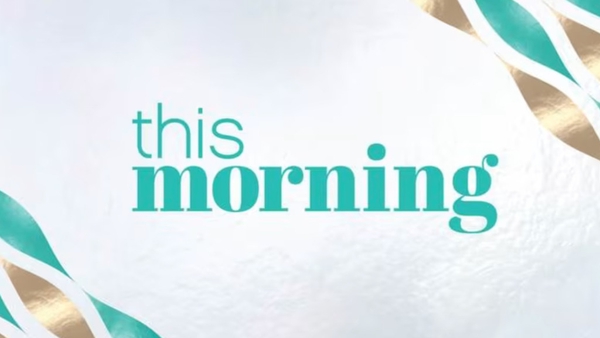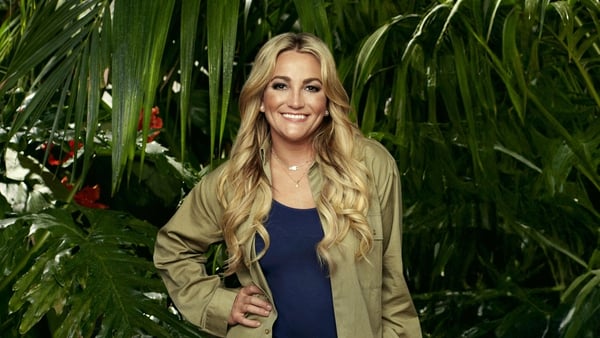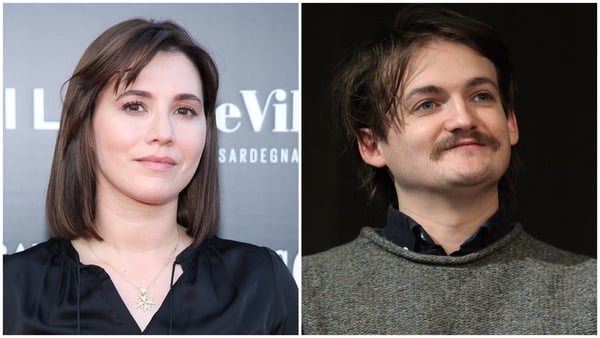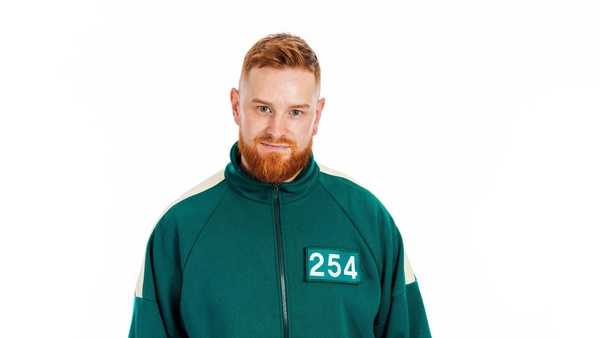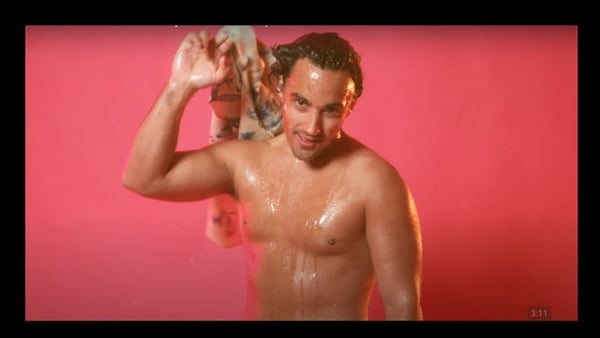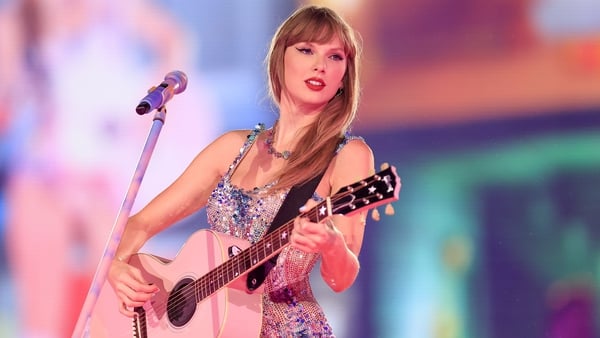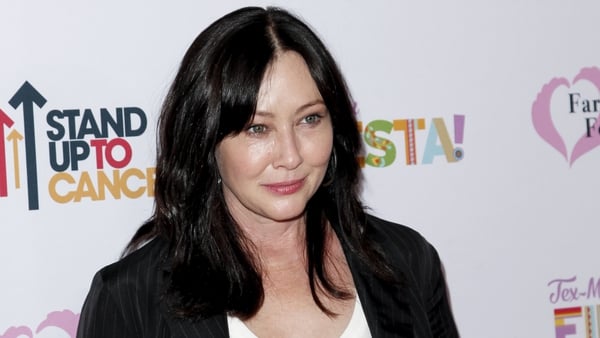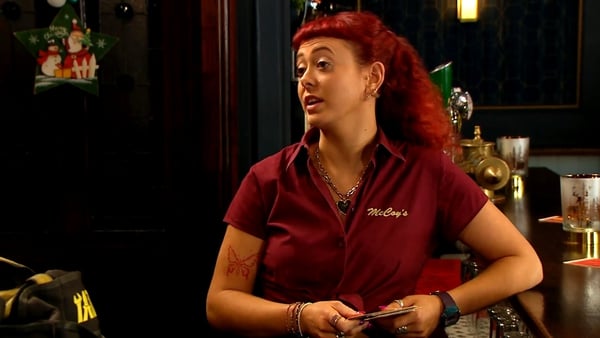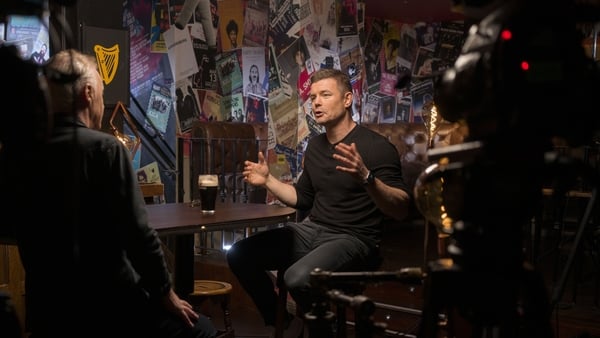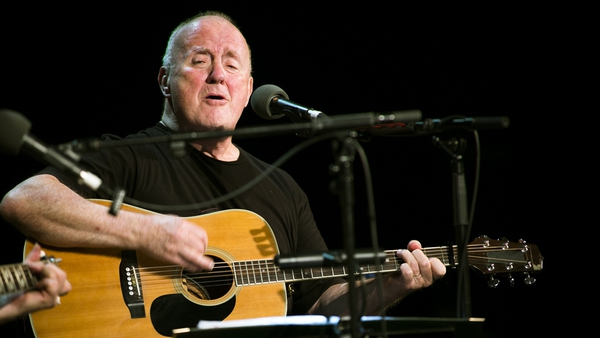"I can't watch this, can we fast forward this bit, please?" Robbie Williams is sitting in the half-light of the palatial LA home he shares with his wife and their four kids. His face bathed in the glow of a laptop, he is looking back on the last thirty years of his life - first as a member of boyband Take That and then as Britain’s most successful solo pop star of the late nineties and at least half of the noughties.
Like Williams himself, you may be shocked to remember just how very big Robbie Willaims was. And how much of a casualty of massive fame he was to become.
We need your consent to load this YouTube contentWe use YouTube to manage extra content that can set cookies on your device and collect data about your activity. Please review their details and accept them to load the content.Manage Preferences
This entertaining warts and all four-part documentary from director Joe Pearlman is drawn from three decades of archive film, a total of 30,000 hours of Robbie, from the gurning bad boy of Take That, the wild success of his solo years, the addictions and the breakdowns, and his current semi-hermit existence as a family man in LA.
Asif Kapadia, who made the remarkable Amy Winehouse film Amy (the most successful documentary in British film history), is executive producer of this latest example of Netflix’s new celeb doc strand and his presence is felt. There is very little in the way of talking heads and instead we see Robbie in real time gazing in wonder and then horror as he looks back on the footage.
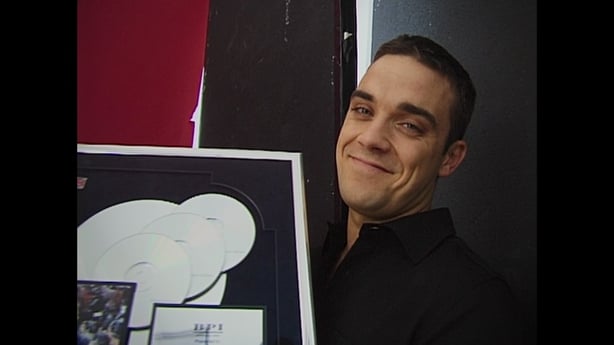
He describes this series as a trauma watch. And hasn't Robbie always had a good turn of phrase? "The past has me in a headlock" he quips and "I’m trying to sort out the wreckage of the past."
He is, of course, the man who could have invented the word "oversharing" and maybe that’s why most of these new interviews were conducted with Robbie in his undies - either in bed or padding around that palatial pile in LA.
It’s not always a comfortable watch and not just because of those Calvin Kleins briefs. Williams got everything he ever dreamt of but as his own song says, he came undone - a lot, most terrifyingly at a gig in Leeds in 2006 when he has a panic attack before he goes on stage in front of 90,000 fans and then performs a two-hour show looking like he wants the stage to swallow him up.
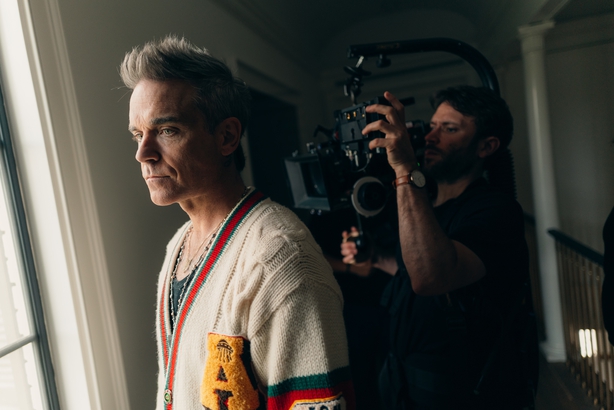
From the very start, he emerged as the cheeky one in Take That. Aged only 16, he tried to front it but the band’s wild success and punishing workload terrified him and he began to resent that everything revolved around Gary Barlow, the band’s supremely talented but rather dull songwriter.
So, Robbie got lost in the bottom of a bottle and the end of a rolled up ten bob note, rocked up to Glastonbury where he was memorably dubbed "the fat dancer from Take That" by Liam Gallagher. Or was it Noel? His solo career got off to a disastrous start. He bashed out his first album in twelve days. It sold a then paltry 33,000 copies (a figure most modern acts would be delighted with) and it seemed that aged 23, Robbie was all washed up and the smart money was on Barlow becoming the UK’s biggest pop star.
Enter Guy Chambers, a jobbing musician who helped the lost former boy bander to hone his songwriting chops and deliver Angels, one of the biggest hits of the nineties.
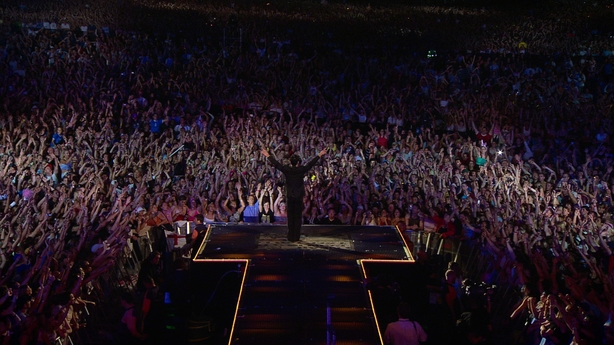
It was a miraculous turnaround and one that Robbie is still clearly trying to process. Back then, he was either hungover or working on his next hangover. You may be reminded of the opening line of Diamond Dogs by David Bowie, a man who negotiated and played with fame brilliantly: "As they pulled you out of the oxygen tent, you asked for the latest party..."
You could say this is how rock stars are meant to behave but sadly young Rob didn’t think much of his actual music either. At one point he quips, "I wanna write Karma Police, I’m writing Karma Chameleon". He was the Dick Van Dyke of pop but the public seemed to love him.
By 1998 he’s back in Glasto this time not as "Bobbins from Take That" but as a star. The following year, he headlined Slane (he admits to being terrified for weeks before the gig and stuck in a black depression) and he also played Croke Park in 2006. He does three nights back-to-back at Knebworth - the NME, back when it had fangs, said it was "naff Britain in microcosm".
Robbie's pursuit of artistic cred was to lead to the career nadir of Rudebox, a fantastically awful song that was gleefully mauled by the media. The sight of Williams in this series still defending it as a brave and experimental leap forward is bewildering.
As is some of this documentary. It is either truncated or spends far too long on certain chapters in Williams’ life which have already been over-documented. Curiously, there is nothing here about his childhood in Stoke on Trent, where he grew up with an Irish mother and his dad, Pete, a part-time stand-up comedian. His years with Take That are glanced also over so that 16 minutes into the first episode, we are already at solo Robbie.
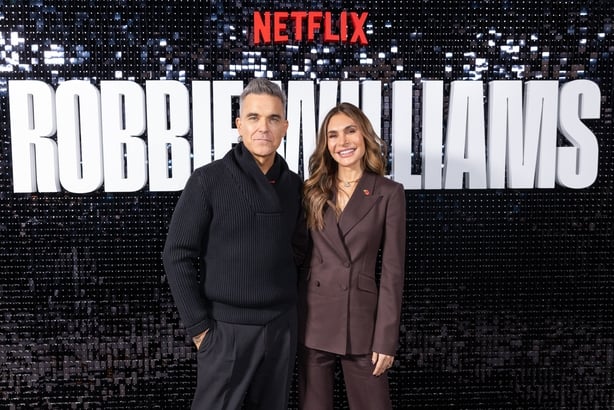
Other than the comedy of errors of how he met his wife, straight talking American actress Ayda Field, his romantic entanglements are given scant attention. He and Nicole Appleton of All Saints ("a less smiley version of The Spice Girls") were an item and going by the behind-the-scenes footage here, they seemed very much in love. However, too much time is spent on showing holiday movies of Robbie frolicking in the Med with Geri Halliwell, a fellow pop star who had also left a fantastically successful band under a cloud.
However, this is a very interesting insight into how the music industry and the media work, or used to work, and a salutary lesson about the toxic nature of fame and the emotional scars it can leave.
Now 49, the 2023 version of Robbie Williams seems damaged but in control and utterly committed to his wife and kids. It’s worth noting that the former Great Entertainer’s most recent song was a jingle for a cat food ad.
This older philosophical Robster is mostly good company, funny and articulate but the approach here is more is more and what starts out as a refreshingly candid look at getting everything you ever wanted and then sinking into a trough of despond can be a bit of a slog. In fact, you may be tempted to fast forward.
Alan Corr @CorrAlan2
If you have been affected by any of the issues raised in this article, please see RTÉ's list of helplines


